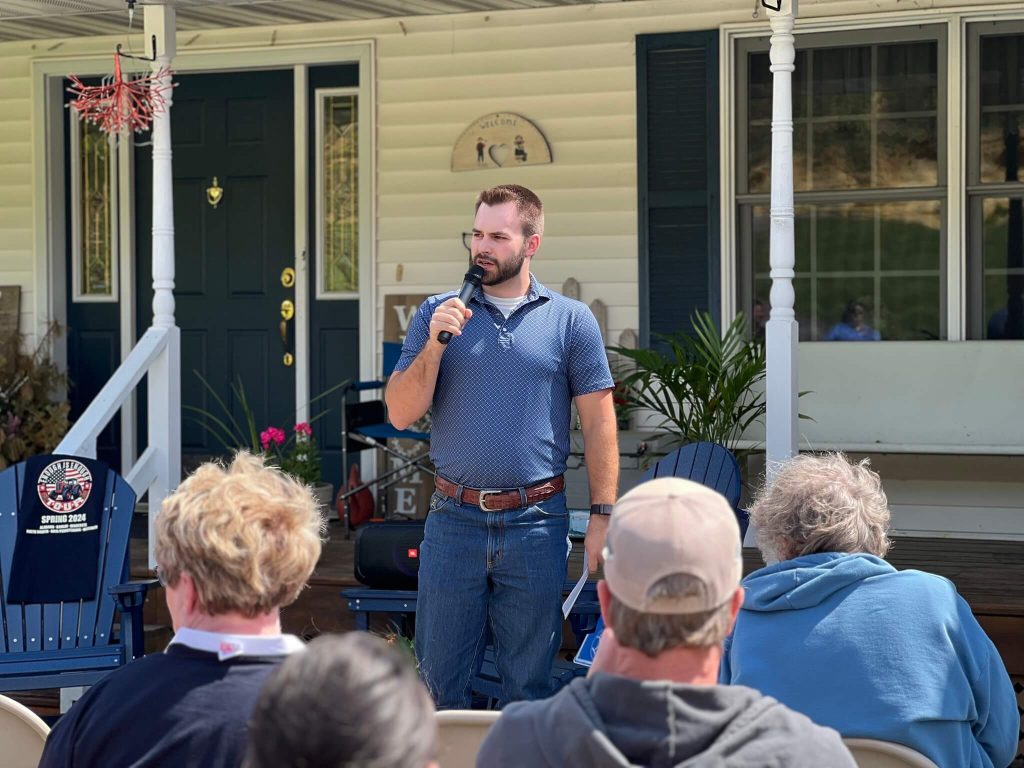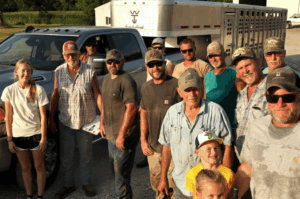Reposted from: https://agupdate.com/agriview/news/crop/farmers-say-enough-to-checkoffs/article_862e0b46-28fe-11ef-858d-ffe6535e8c97.html
OSSEO, Wis. – Disgruntled with the federal government’s lack of oversight for checkoff dollars used by commodity promotion and research boards, farmers and ranchers are calling for transparency and more accountability of where that money is spent.
Sponsored by 16 farmer-led groups, the “Enough is Enough” tour traveled through six states to present their case. Representatives met at the Wisconsin farm of Brad Goplin, south of Osseo, to discuss the Opportunities for Fairness in Farming Act of 2023, which has been introduced in Congress. The legislation calls for limits on checkoff money for cotton, potato, egg, beef, wheat, flowers, honey, dairy, pork, watermelon, pecan, mushrooms, lime, beans, sheep, canola, kiwi, popcorn and avocados.
Both the U.S. Senate and the U.S. House have versions of the legislation; the bills are bi-partisan with sponsors from both major political parties. If a bill is agreed on by the two legislative bodies and is signed by the president, it would forbid any of the listed commodity boards from contracting with any entity that engages in lobbying. It also prevents board members or employees from having any conflicts of interest within the boards, and it prohibits one commodity group from disparaging another commodity. Institutions of higher education that do research are exempt from the rules.
The proposed law would also force commodity boards to make public the purpose of any money they spend, how much they spend and who the recipients are. Audits to determine compliance would be done regularly by the U.S. Department of Agriculture and the Comptroller General. The latter is tasked with giving recommendations for improvements. The Wisconsin Farmers Union and 15 other sponsors are backing the legislation.
Christian Lovell, an Illinois Hereford farmer, spoke at the Goplin meeting. He said he first paid into the beef-checkoff dollars in ninth- or 10th grade when it was voluntary. He said there was a box to check; if he felt he wasn’t getting his money’s worth, he didn’t need to check the box. He said it’s now a mandatory tax.
“It’s supposed to go to research and promotion,” he said. “But when we look toward today and we look at the recipients of some of these, a lot of them are the biggest industry associations that represent, what I view, as corporate consolidated agriculture.”
Lovell worked in Washington, D.C., as a congressional staffer before becoming a full-time beef farmer. He saw firsthand how lobbying works; he said farm-organization lobbyists don’t necessarily work for farmers. As an example, he said the National Cattlemen’s Beef Association does a lot of lobbying for the big packers, not the producers. The association worked to end the USA label that packers fought against – a label that he sees as a plus for cattle producers.
He said he thinks the Opportunities for Fairness in Farming Act would help farmers.
“It would prevent the money from going to industry organizations that lobby on agriculture policy,” he said. “I think it’s important that we all as farmers come together and make our voices heard. I can promise you they are hearing from other people, from other lobbyists (and) from other industry groups. They don’t often hear a lot from the actual farmer.”
The proposed legislation, in its current form, doesn’t make checkoffs voluntary as they once were. Promoters of the bill said it leaves them as they exist, but adds a layer of transparency. National commodity boards are administered by the USDA’s Agricultural Marketing Service.
The bill doesn’t include corn because that commodity doesn’t have a standard federal program. Money is collected by each state, which then uses the funds to support national corn groups. Also left out of the legislation are Christmas trees, blueberries, peanuts, sorghum and mangoes. Organic farmers, whether with a split operation or 100 percent organic, are exempt from all checkoffs.
The goal of the Enough is Enough tour was to inform farmers and encourage them to call their senators and representatives in Congress to ask them to vote for the legislation. Tour stops were in Wisconsin, Minnesota, Kansas, Ohio, Alabama and North Dakota.
The bill numbers for the legislation are H.R. 1249 – which is currently sitting in the House Committee on Agriculture – and S. 557, which is currently sitting in the Senate Committee on Agriculture, Nutrition and Forestry. Visit www.congress.gov and search for the bill number for more information.
This is an original article written for Agri-View, a Lee Enterprises agricultural publication based in Madison, Wisconsin.
Visit AgriView.com for more information.



